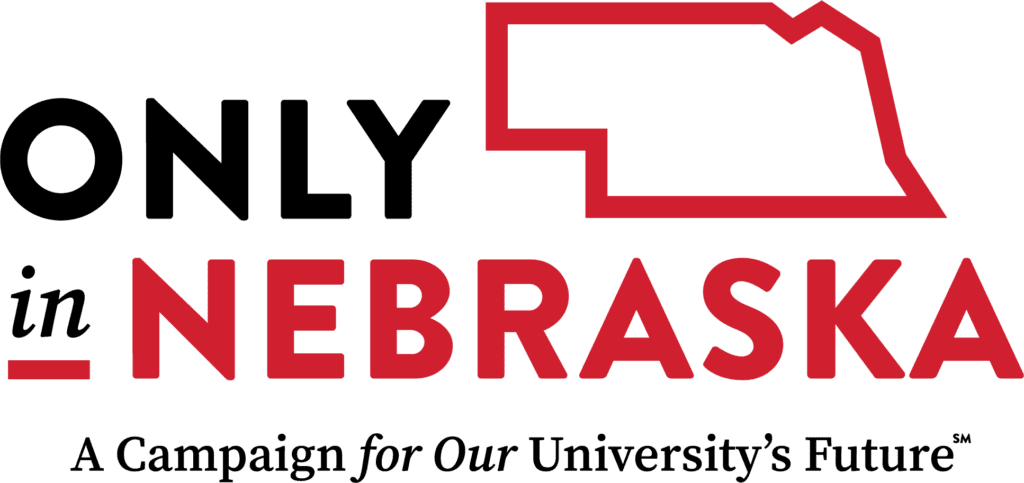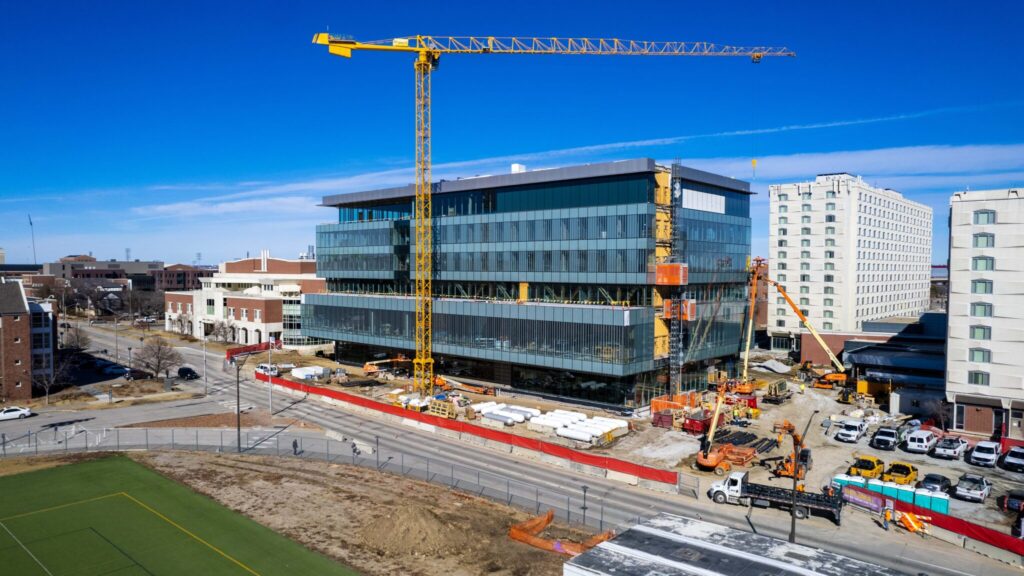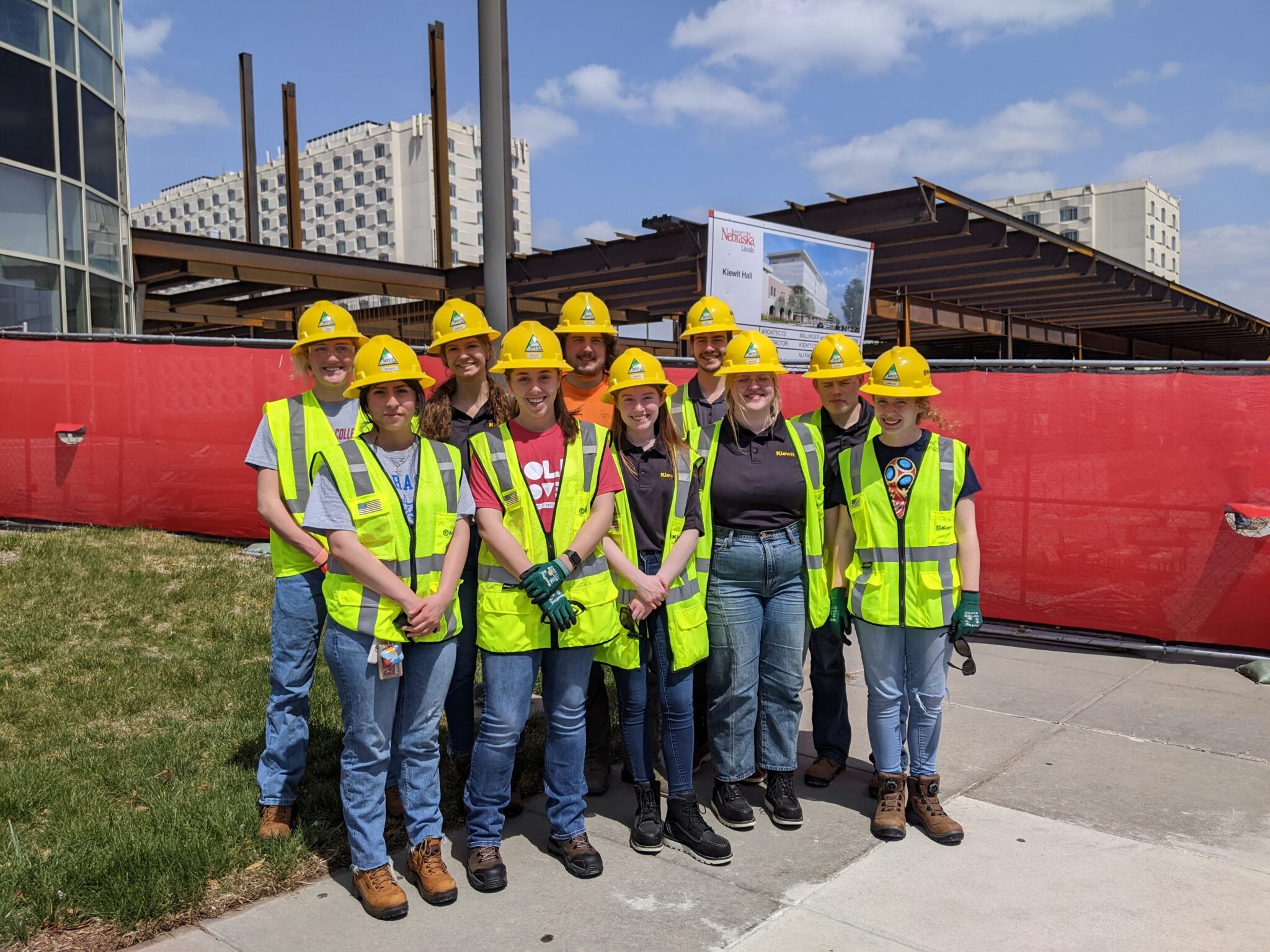Growing the College of Engineering is a major priority of Only in Nebraska: A Campaign for Our University’s Future. The campaign’s overall goal is to raise $3 billion from 150,000 unique benefactors to support the University of Nebraska.
In addition to new and improved facilities, the College of Engineering seeks to increase its number of merit- and need-based scholarships to assist in recruiting and retaining students and to invest in faculty to help students succeed and increase the college’s ability to engage with industry and conduct research. And, an investment in research and innovation will fuel economic development in Nebraska.
“Philanthropy is just so important to enabling us to accomplish our goals and to deliver on our mission,” said College of Engineering Dean Lance C. Pérez.
He noted the $115 million Kiewit Hall is entirely funded by donors, with a $25 million naming gift provided by Kiewit Corp.
“Without philanthropy, that building simply wouldn’t be,” he said.
Pérez said Kiewit Hall is critical to the college’s goal of growing undergraduate enrollment from 3,000 to 5,000 students.
“The quality of your facilities plays a really important role in recruitment. Students want to come to a place and a facility that show you’re taking their education seriously,” he said.
By constructing buildings, hiring new faculty, recruiting more students and expanding research, the state’s only engineering college can spur economic development in Nebraska, Pérez said.
Engineers are in huge demand across the state and are essential to its biggest industries. Nebraska’s banking and insurance companies, for example, require software engineers to support their online infrastructure. Modern agriculture needs equipment for automation and data analytics to manage water resources, fertilizer, seed distribution and productivity, he said.
Growing Nebraska’s pipeline of engineers and computing and construction professionals is critical to filling those and other open jobs in the state and region and to creating new jobs, Pérez said.
“Engineering plays a role in more and more sectors of both the Nebraska economy and the U.S. and global economy,” Pérez said. “We have to produce the engineers who can fill those roles.”
Pérez has high praise for the college’s “amazing, world-class faculty,” who he says are doing research to address the fundamental problems facing the United States and the world.
“From climate change, to disease, to better construction methods, to new approaches on computing, we have faculty doing work in all those areas,” said Pérez, who holds the Omar H. Heins Professorship of Electrical and Computer Engineering.
The College of Engineering, which also offers programs on the Scott Campus at the University of Nebraska at Omaha, added 13 new faculty members for the 2022-23 academic year, increasing total faculty hires to 67 over the past six years.
“A lot of economic growth occurs from the intellectual property and startup companies that come from having a really vibrant research enterprise,” Pérez said.
Philanthropic support is critical to retaining those faculty, he said, while keeping a Big Ten engineering education within reach for all students through scholarships and other funding.
A $2 million gift from alumna Kit Schmoker and her late husband, university alumnus Dick Schmoker, will fund the Schmoker Presidential Chair in Systems Engineering — a high demand field in Nebraska and nationally. Pérez also noted the impact of gifts for named endowed professorships. In fall 2022, 10 faculty members were honored with named professorships, including those supported by the family of Ray Fauss, Wilmer J. and Sally L. Hergenrader, Richard L. McNeel, and Robert F. and Myrna L. Krohn.
This article includes material provided by the College of Engineering.






